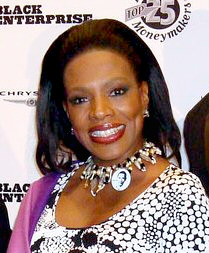A Quote by Annie Lennox
There's so much stigma around HIV/AIDS. It's a challenging issue, and the people that already have been tested and know their status find it very, very hard to disclose their status, to live with that virus, and to even seek out the kind of information they need. This experience of going to South Africa a decade ago really woke me up to the scale of the HIV/AIDS pandemic in sub-Saharan Africa, how it was affecting women and their children. I haven't been able to walk away from it.
Related Quotes
We think that if we get tested, that means you have to have HIV. Or we think that just by knowing someone with HIV, we're going to get HIV or because he's gay or she's a lesbian or whatever. This false information has been put out there and it's created this stigma that stops us from going to find out if we're infected. The truth is it doesn't matter who you are, if you're having sex, you need to be getting tested, plain and simple.
I spent the past week here in India getting a sense of the reality of HIV and AIDS in people's lives. Fathers and mothers are dying, leaving children with no support. Stigma and discrimination is ruining the family lives. There is an urgent need for education, information, and increased awareness of HIV and AIDS. The response needs to be now. We cannot afford to become fatigued.
And now South Africa has finally woken up and it is doing great things. And if South Africa becomes the template to what AIDS is in the sub-Saharan continent, then all the other countries are going to follow suit. And Michel Sidibe, who spoke at the breakfast meeting this morning, was saying that there is so much hope for Africa now that South Africa has got its house in order.
Sport can be used for messaging, for example, making the connections between shin guards or a helmet that protects you, and protection in terms of HIV and AIDS. There has also been a very active program in Africa called 'Kick Polio out of Africa,' where soccer players have spoken out in terms of polio. There is also going to be a swim for malaria.
Children who have lost parents to HIV/AIDS are not only just as deserving of an education as any other children, but they may need that education even more. Being part of a school environment will prepare them for the future, while helping to remove the stigma and discrimination unfortunately associated with AIDS.
The reports from the scientific world are that, there is very sadly an escalating impact of HIV and Aids in South Africa. And it’s from what I have read assuming distinct characteristics which were atypical of how this phenomenon had developed in the States and therefore this meant that we look at what it is that results in all of this, specific to our country.


































